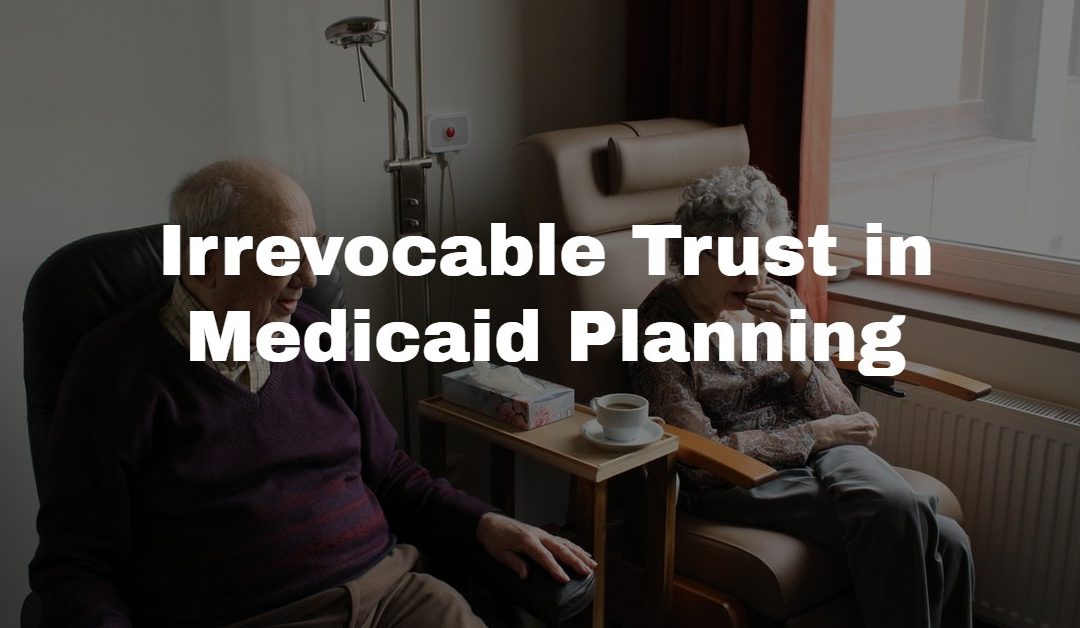When a person is planning for the possibility of becoming incapacitated one day or for the inevitability of death, the common tools a person might reference needing include a Will, Power of Attorney, Health Care Proxy, and Living Will. However, frequently, when we discuss that person’s goals, near the top of the list is the following:
“I am worried that if I end up in a nursing home, the government will take my home to pay for it.”
This concern is expressed in a number of different ways, mostly stemming from a lack of knowledge about how the process actually works. Today, I’m going to provide some basic information.
More importantly, I’m going to share some of the details about one of the best techniques to avoid the government coming for its pound of flesh when you happen to need nursing home care.
First, you’ll need a working knowledge of how Medicaid eligibility and recovery works. While there are a number of different Medicaid services, the most common one that people ask about is payment for skilled nursing, so I’ll focus there.
Assisted living is for those who do not require constant care, but need assistance with activities of daily living (ADL’s), such as with eating, bathing, dressing, medication management, etc. Skilled nursing is a more intensive care solution, and is more of a medical setting.
While there may be some resources for assisted living, skilled nursing is when Medicaid typically begins to pick up the tab.
In NC, in order to be eligible for Medicaid, you have to have no more than $2,000 in assets ($3,000 if married and both spouses are in a facility). As is often the case with many government programs, there are complicated rules about what is and is not an asset, and there’s an entire sub area of Medicaid Planning which deals with spending money in a way to convert assets from countable assets into non-countable assets.
However, many people will be compelled to spend down their entire lifetime of savings on skilled nursing costs to $2,000 before Medicaid begins helping with the payments. At several thousands of dollars per month, a lifetime of wealth can be spent very quickly.
It’s true that often the primary residence won’t count against a person’s eligibility, and it’s also true that a vehicle may not count against a person’s eligibility, but the concerns about Medicaid don’t stop there. There’s also the issue of recovery.
There’s an entire department at DHHS dedicated to filing claims against the estates of deceased people and forcing their families to sell the house and car to pay back Medicaid. As if it wasn’t bad enough to have to spend down a lifetime of earnings to qualify, the little bit that was left behind also goes to pay the government.
What does an Irrevocable Trust do?
How does an irrevocable trust save us from eligibility problems and recovery problems? How does an irrevocable trust help someone get Medicaid sooner without having to spend their own money? How does an irrevocable trust prevent Medicaid from forcing the sale of assets after you die?
An irrevocable trust, as the name might insinuate, means once it is created, it cannot be changed. You, the creator of the trust, are essentially creating an “entity” known as a trust and funding that entity with your assets. You would put someone else in charge of managing the trust, “a trustee”, and that person is usually a loved one or trusted confidant.
You would also name lifetime beneficiaries, usually your kids, who can benefit from the trust. Nothing prohibits the lifetime beneficiary from taking distributions and deciding on their own initiative to use the assets for you, but they are not required by the trust’s terms to do so. You also provide what happens to the property in the trust when you pass away one day. You can reserve some rights, such as the right to reside in the home and some rights regarding who gets property.
Because you have relinquished control over the property and have no right to it (and it’s in the hands of someone you trust), then it no longer is an asset for purposes of Medicaid eligibility. The assets you put into the trust, after five years, are not going to count against you.
Keep in mind, though, that Medicaid has a 5-year lookback, so if you apply for Medicaid within 5 years, there will be a significant penalty for employing this technique. If someone needs Medicaid within 5 years (or right now), you would not use this technique. You would have to employ crisis planning techniques, which may not be as effective in preserving assets or might have more risks associated with them.
However, if you are proactively planning well in advance of when you might need nursing home care, this technique of moving assets into a specialized trust, an irrevocable Medicaid trust, may be the most efficient way to preserve assets.
A common question I get is: “How is this different than just giving someone my property?” There are a few advantages:
First, their problems do not become your problems. The trust isn’t going to be reachable by the creditors of the person you put in charge. So, if your trustee accrues gambling debt, or medical bills, or gets sued, the trust is not accessible to pay that debt or judgment.
If you give them the property directly instead of through a trust, their debts suddenly become your debts in a manner of speaking, as your assets are part of the pool of property available to pay off their debts by aggressive creditors.
Second, divorce can be a real messy process, So, if the person you give this property to gets divorced, suddenly your assets might be caught up in an equitable distribution claim by the other spouse, putting it at risk.
Even if your trusted person isn’t married now, they could get married, and then get divorced. If your property was being managed by this trusted person through a trust, those assets are not part of the equitable division of assets in the event of divorce.
Third, the person you give this property to might suddenly get sick, and someone else might end up managing your money in a way you don’t like. If the person had proper planning done, they might have an agent under a Power of Attorney managing their assets, and now your assets.
If the person did not have proper planning or if despite proper planning it became necessary, the person might have a court appointed guardian, and then would almost certainly be prohibited from using the funds for you, as the use of every dollar is audited by the court and must be used for the person’s care – not yours. A trust makes this a non-issue, as the trust would provide for a new trustee to take over in the event of incapacity or resignation.
Fourth, what if the person suddenly died, and your assets are tied up in their estate and end up being distributed to people you don’t know or don’t like, or don’t have the same understanding about managing these assets that your trusted person might have had.
The spouse, children, cousins, or charities receiving the estate of your trusted person are not likely to be as understanding about your informal arrangement. Similar to how illness is treated, a trust would prevent this from being an issue as the assets of the trust are not part of the estate and the trust itself would provide backup trustees to take over management of the trust.
Fifth, there are some substantial tax benefits to using the trust to deal with the transfer of assets at your death rather than giving it to people now. Giving people real estate or investments that you purchased for a lower price would have the effect of causing capital gains when they sell it.
If a person inherits property at your death via a trust or otherwise, they get a step up in the basis of the property, which means less or no capital gains potentially. If you have any highly appreciated assets, this could mean a great deal of tax savings by using the trust.
I have seen an irrevocable trust for Medicaid planning save families hundreds of thousands of dollars and save the family home from the reaches of Medicaid.
I have also been in the unfortunate situation of telling a family that their plans to use their inheritance are no longer tenable because Medicaid Estate Recovery has filed a claim for an amount in excess of all the available assets, so the family gets nothing from the estate of their family member and we have to spend the next year sorting out a judicial sale of the home.
I have also been in the position of pouring through records trying to find some technical defense to Medicaid recovery claims, and not always with success. A properly done irrevocable trust for Medicaid is an incredible tool for holding onto more of your hard-earned money and permitting the assets you don’t use to actually make it to the next generation and not the government coffers.
If you are curious about Irrevocable Trusts, Medicaid Planning generally, or Estate Planning, our attorneys at Hopler, Wilms, & Hanna are experienced at handling all of the above and more. We focus our practice on empowering people to take control of opportunity and legacy. An irrevocable trust is but one tool in our arsenal to accomplish that mission, but it is indeed a very useful one.

